Warning: Undefined variable $page_cta in /var/www/vhosts/dev.fastspot.com/httpdocs/clients/siena/templates/basic/content.php on line 10
It is important that today’s students understand that the movement was made up of thousands of ordinary people, not just the few famous figures they learn about in their textbooks.
The attached individual profiles are intended to give teachers an idea of each person’s experiences and the topics each is prepared to discuss with students. No single speaker experienced all aspects of the movement, but some of the events they participated in include the Montgomery Bus Boycott, the student sit-ins, the March on Washington, Mississippi Freedom Summer, and the Selma to Montgomery march.
Contact information is provided for each movement veteran. Teachers should contact each speaker directly to make arrangements about appearances in their classes.
Questions or suggestions should be directed to Professor Paul Murray who can be contacted by e-mail at murray@siena.edu.
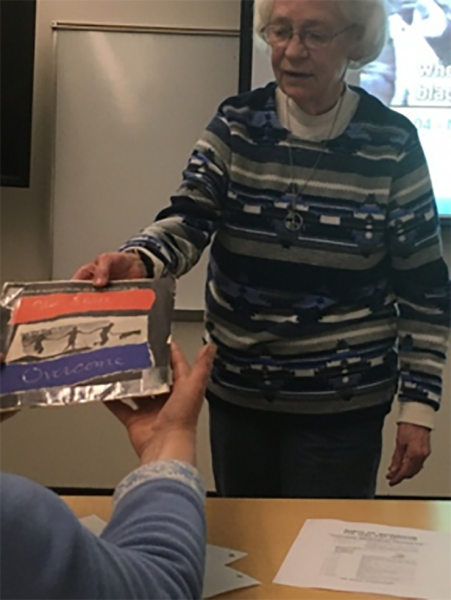
Susan Butler
In 1963 Susan Butler was a teacher at the School for the Deaf in New York City when she and a group of friends drove to Washington, D.C., to participate in the March on Washington where Martin Luther King delivered his famous “I Have a Dream” speech. The following summer she went to Jackson, Mississippi, as a volunteer teacher in a Freedom School as part of the Freedom Summer project. In March 1965 she joined hundreds of other civil rights advocates who came to Selma, Alabama, to demonstrate for voting rights. After the 1968 assassination of Dr. King, Susan flew to Memphis for a memorial march in support of striking African American sanitation workers. A lifelong activist, Susan lives in retirement in Chestertown, New York
Topics: The March on Washington Freedom Summer The Selma to Montgomery march “Selma” (the film)
Contact: sebutler518@gmail.com, (518) 494-3835
Availability: Susan limits her driving in the winter months
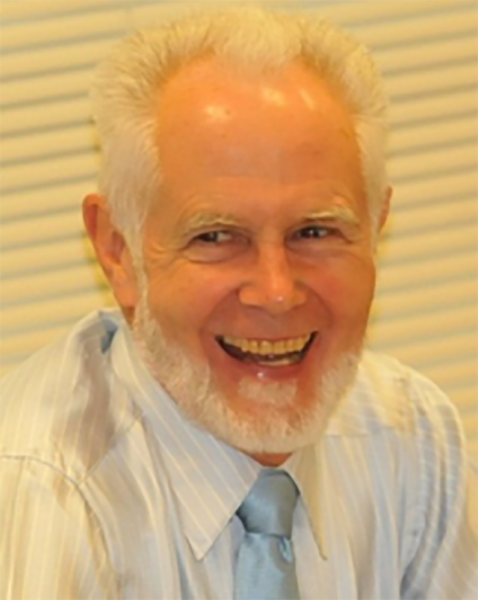
Paul Murray
Professor Paul Murray taught at Siena College for 37 years until his retirement in 2016. He developed courses on movements for social change including “The Civil Rights Movement” and “Making Sense of the Sixties.” He also led study tours of high school and college students visiting scenes of the Civil Rights Movement in Alabama and Mississippi. While a college student he worked for civil rights both in his home town of Detroit and as a summer volunteer in rural Mississippi. As a young professor he testified as an expert witness in voting rights cases for the U.S. Department of Justice and the Lawyers Committee for Civil Rights under Law. He is an award-winning author of numerous articles on civil rights in scholarly journals and reference works. His current research focuses on religiously motivated activists in the Civil Rights Movement.
Topics: “The Long Struggle for Voting Rights”,“Mississippi: Opening the Closed Society”,“Unsung Heroes of the Civil Rights Movement—Diane Nash, Bob Moses, Fannie Lou Hamer”,“The Music of the Civil Rights Movement”
Contact Information: (518) 588-1838, murray@siena.edu
Availability: Please contact two or more weeks ahead of desired speaking date.
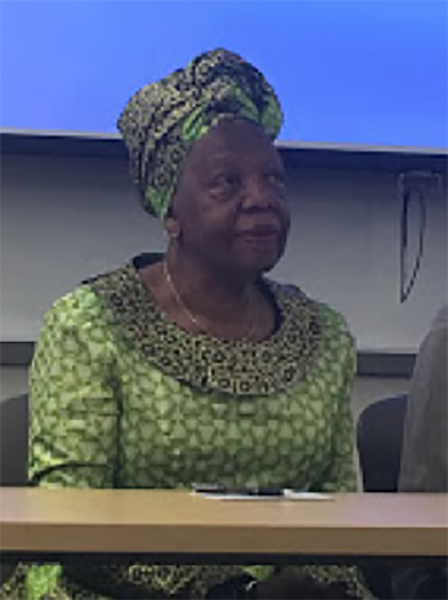
Nell Stokes
Nell Stokes was born and raised in Montgomery, Alabama. As a young girl she experienced the insults and humiliation of a segregated society. In 1956, as a sixteen-year-old high school student, Nell volunteered to help with the historic Montgomery bus boycott. A few years later, when she tried to become a registered voter, she encountered the corrupt system devised by the state of Alabama to prevent African Americans from voting. Nell moved to Albany as a young married woman where she raised her family and became active in several community organizations. She is an eyewitness to history who has shared her story with young people on numerous occasions.
Topics: Living in a Segregated Society The Montgomery Bus Boycott
Contact: (518) 463-8943, nellstokes39@gmail.com
Availability: Please contact two or more weeks ahead of desired speaking date.
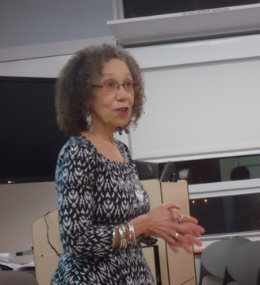
MARGARET "MIKI" CUNNINGHAM CONN
In 1957 Miki Conn’s family moved into Delmar, becoming the first African American family to live in in this previously all-white suburb. She and her sister were the only black students in the Bethlehem school district. After graduating from high school Miki enrolled in historically black Howard University where she studied art. She soon became involved in the Civil Rights Movement, joining the Nonviolent Action Group (NAG) which was affiliated with the Student Nonviolent Coordinating Committee (SNCC). In 1962 Miki and other NAG members were arrested while demonstrating against segregation in Cambridge, Maryland. During the summer of 1963 she was a volunteer helping to prepare for the March on Washington. Miki married Butch Conn, a white civil rights activist. At the time their interracial marriage was illegal in twenty states. Miki and Butch settled in Schenectady where she was director of the Hamilton Hill Arts Center. In retirement Miki continues her involvement with community organizations.
Topics: “Integrating Delmar” (with Arlen Westbrook) “The Student Nonviolent Coordinating Committee,” “Organizing the March on Washington,” “Women in the Civil Rights Movement,” “The Loving v. Virginia Supreme Court Decision,” “The Black Arts Movement”
Contact: (518) 364-8898, mikiconn@gmail.com
Availability: Afternoons and evenings are best.
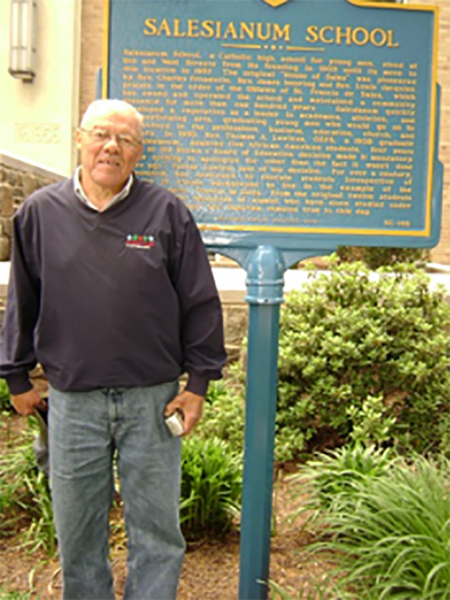
JAMES "JIM" OWENS
Jim Owens is the oldest of eleven children born and raised in Wilmington, Delaware. During the 1950s Delaware was the northernmost Jim Crow state. Schools, parks, and public facilities were segregated. Jim and his siblings attended St. Joseph’s elementary school, an all-black Catholic school. After graduating from eighth grade in 1949, Jim wanted to continue his education at a Catholic high school, but none of Wilmington’s Catholic secondary schools accepted African American students. A black businesswoman made it possible for him to attend Southeast Catholic High School in Philadelphia where schools were not segregated. Every morning Jim rode the commuter train to the City of Brotherly Love; every afternoon he rode home. In November 1950 Father Thomas Lawless, principal of Wilmington’s Salesianum School, a highly regarded all-boys Catholic high school, told Jim’s parents he wanted their son to enroll in his school. Because Salesianum was a private school, it was not bound by the state law requiring segregated education. On November 13, 1950, four years before the Brown v. School Board Supreme Court decision, Jim Owens became the first African American student to attend classes with white students in the state of Delaware. The next day four more African American students joined him at Salesianium. Owens moved to Albany in the 1960s where he found work as a printer and raised his seven children.
Topics: “Living in a Segregated Society,” “The Desegregation of Salesianum School,” “Racism North and South”
Contact: runnerowens@aol.com, 518-783-7057
Availability: Please contact two or more weeks ahead of desired speaking date.
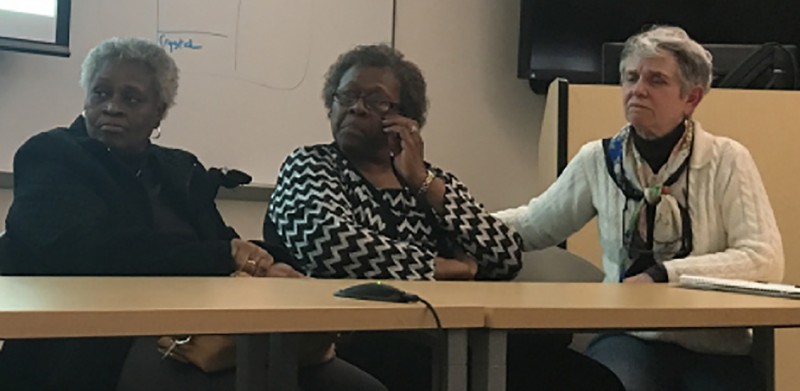
DOROTHY SIGLETARY, ANDREESA COLEMAN, and JULIE KABAT
Lucien “Luke” Kabat was a third year medical student in 1964 when he volunteered for the Mississippi Freedom Summer Project. This project brought one thousand northern volunteers to “the most segregated state in America” to fight racism by working on voter registration and teaching in Freedom Schools. Luke was assigned to Meridian. Just a few days before he arrived in Mississippi three civil rights workers from Meridian—Mickey Schwerner, James Chaney, Andrew Goodman—disappeared in nearby Neshoba County. While the search for their bodies continued, Luke taught biology to eager African American students in Freedom School classes. Two of his students that summer were sisters Andreesa and Dorothy Thompson who later moved to Albany. Luke Kabat died of cancer a few years after his Freedom Summer experience, but his memory is celebrated by his sister Julie. The three women present a vivid picture of black-white friendship in the midst of racial terror during this critical chapter of the modern Civil Rights Movement.
Topics: Freedom Summer in Mississippi Freedom Schools in Mississippi
Contact: Julie Kabat 518-766-4276, jukawawa@fairpoint.net
Availability: Contact three or more weeks in advance so the women can coordinate their schedules.
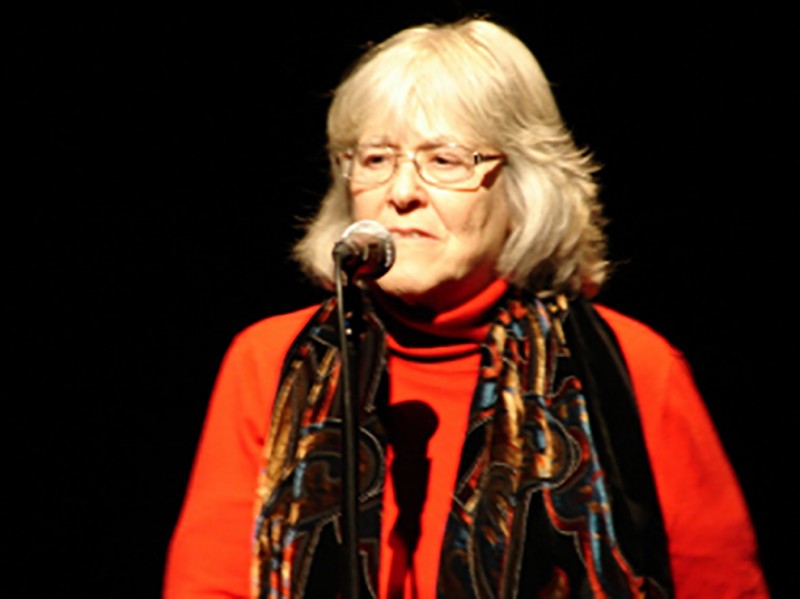
PATRICIA BARBANELL
Patricia Barbanell was a twenty-one year old college student when she volunteered for the Mississippi Freedom Summer project. She went south despite the objections of her parents who feared for her safety. Pat spent the summer as a Freedom School teacher in Columbus, Mississippi. She taught French because that was what her students requested. “The reason they wanted French,” she explained, “was because they didn’t get it in their schools.” “It was an incredible experience,” she recalled. “I learned much more than I taught—about people and life.” Pat earned a doctorate from Columbia University and spent more than 30 years as a K-12 and museum educator with expertise in multicultural education and technology integration.
Topics: Freedom Summer
Contact Information
Availability: Please contact two or more weeks ahead of desired speaking date.
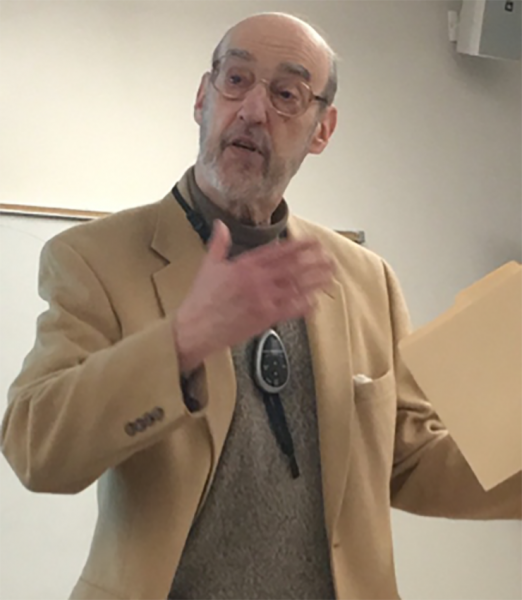
STEPHEN GOTTLIEB
Stephen Gottlieb is Jay and Ruth Caplan Distinguished Professor at Albany Law School. He is a graduate of Yale University Law School and an expert on constitutional law. As a young lawyer he worked for the National Association for the Advancement of Colored People (NAACP) and participated in the March on Washington. He also served as a Peace Corps volunteer in Iran. He has served on the board of the New York Civil Liberties Union and as a member of the New York Advisory Committee to the U.S. Civil Rights Commission. He is a regular commentator on WAMC radio. Professor Gottlieb is the author of several books on legal topics including his most recent, Unfit for Democracy: The Roberts Court and the Breakdown of American Politics. Topics: Brown v. Board of Education The Long Struggle for Voting Rights
Contact: sgott@albanylaw.edu
Availability: Please contact at least two weeks before desired speaking date.
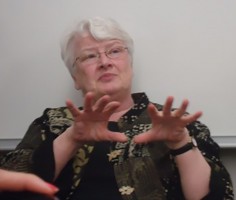
JEANETTE GOTTLIEB
Jeanette Gottlieb was born and raised in North Carolina. She enrolled at The Women's College of the University of North Carolina in Greensboro, the first member of her family to attend college. Greensboro was the site of the first student sit-in at a segregated lunch counter. When Jeanette arrived on campus in 1961 the sit-ins were continuing. She picketed and distributed leaflets in support of integration. She and three friends were instrumental desegregating a local movie theatre. After graduating from college she served as a Peace Corps volunteer in Iran.
Topics: Living in the Segregated South The Student Sit-in Movement
Contact: jeanettegny@earthlink.net
Availability: Please contact at least two weeks before desired speaking date.